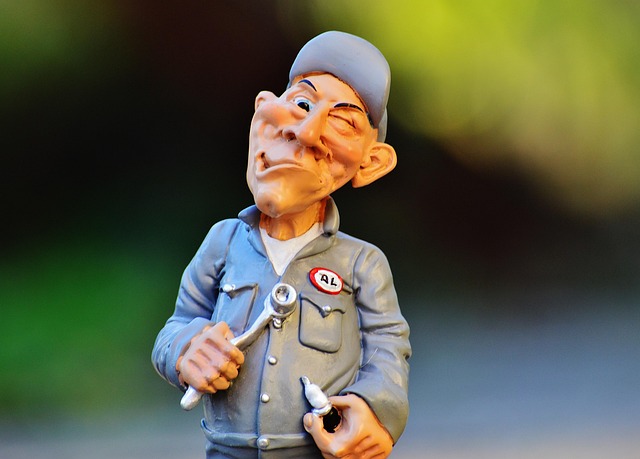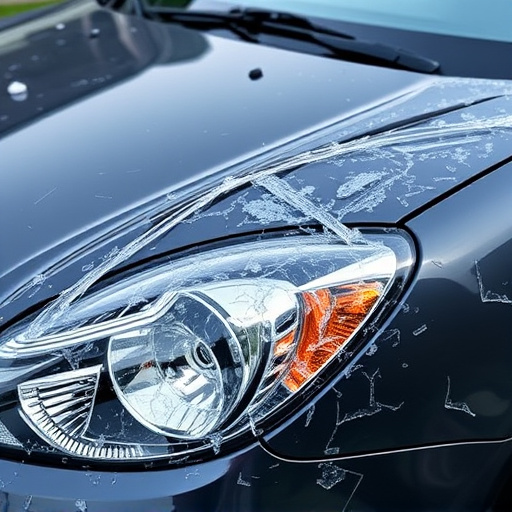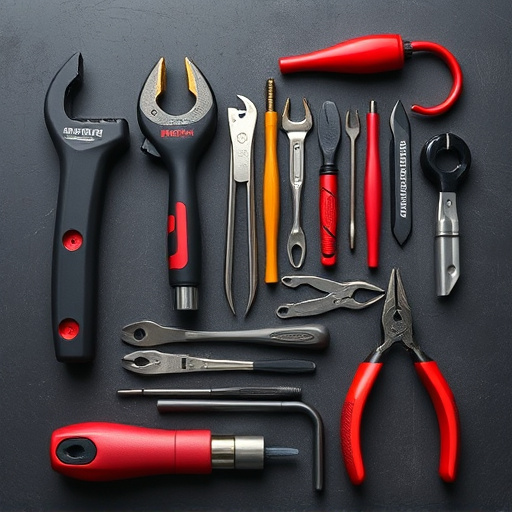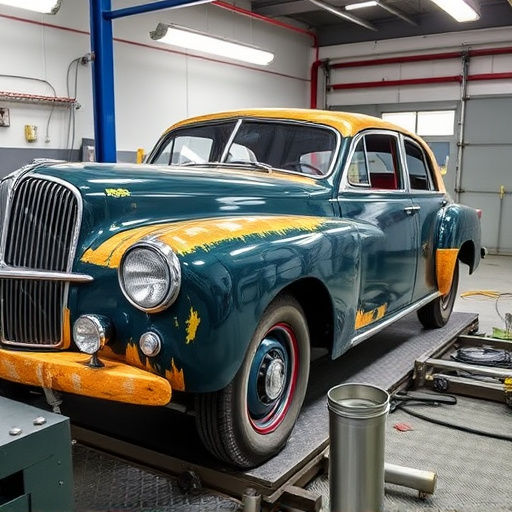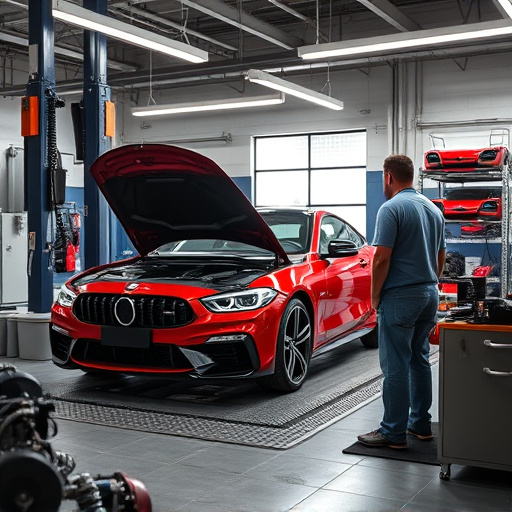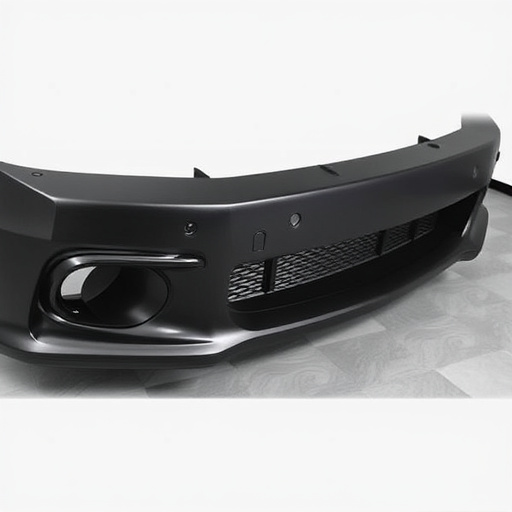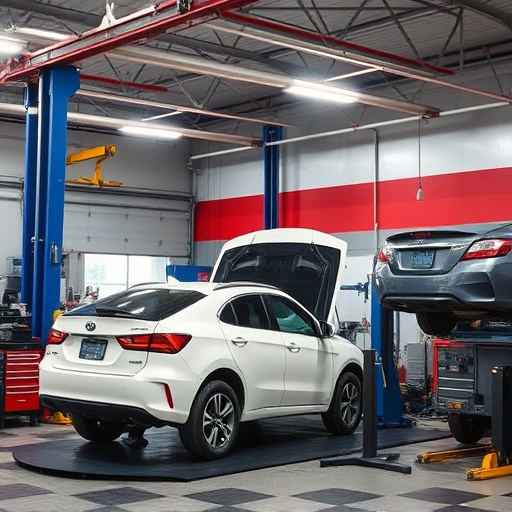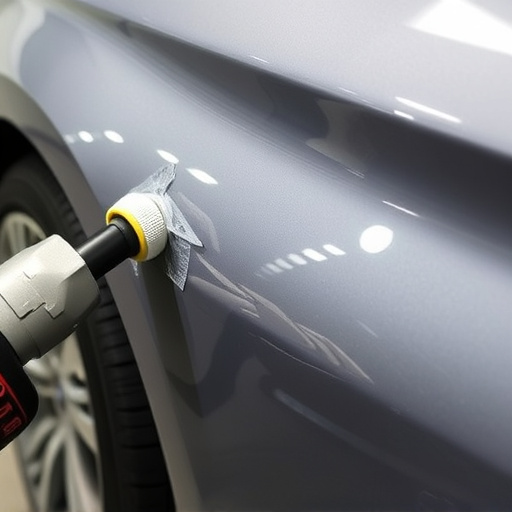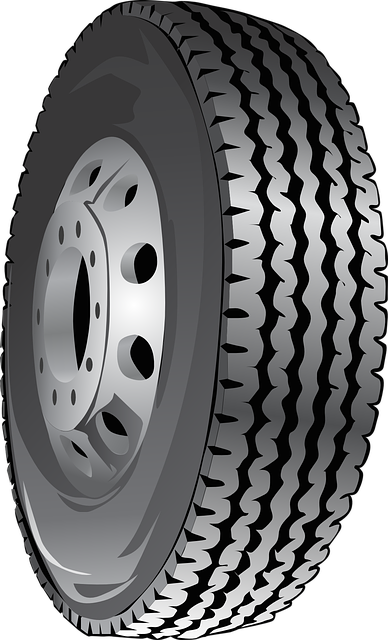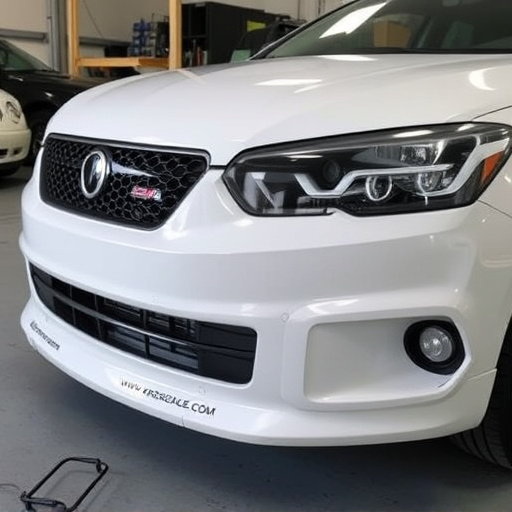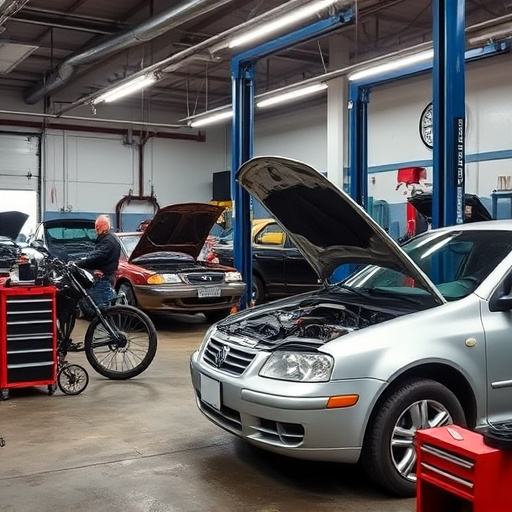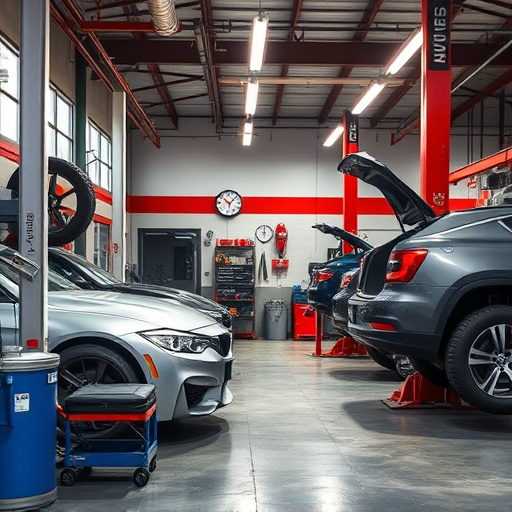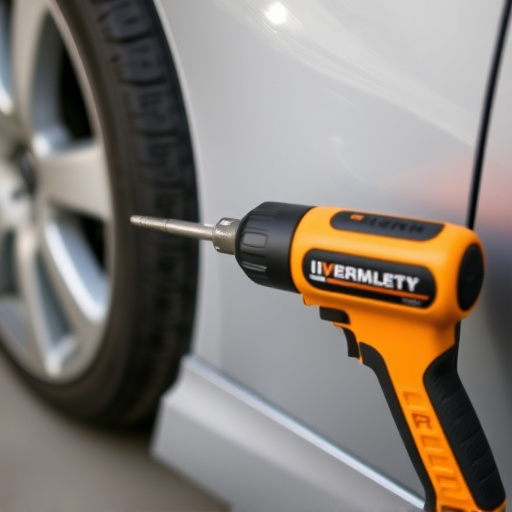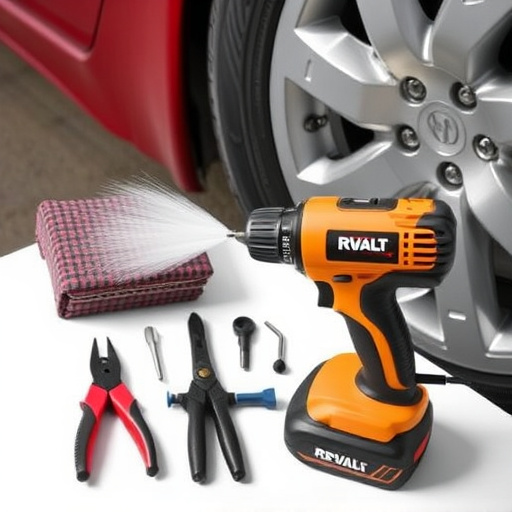Lightning strike auto repair demands specialized skills and advanced diagnostic tools to address visible and hidden damage. Reputable shops implement rigorous quality control measures, including comprehensive inspections and strict repair protocols, ensuring compliance with industry standards. Well-trained, certified technicians with continuous training in complex repairs maintain structural integrity and aesthetic excellence while fostering customer satisfaction and road safety.
In the realm of automotive restoration, lightning strike auto repair stands as a specialized challenge. Shops tackling this intricate process must ensure meticulous quality control to restore vehicles safely and effectively. This article delves into three critical strategies employed by top shops: understanding unique lightning strike damage, implementing rigorous quality control measures, and providing comprehensive training for technicians. By mastering these aspects, shops deliver superior results in lightning strike auto repair, ensuring customer satisfaction and vehicle safety.
- Understanding Lightning Strike Auto Damage
- Implementing Rigorous Quality Control Measures
- Training and Certification for Technicians
Understanding Lightning Strike Auto Damage
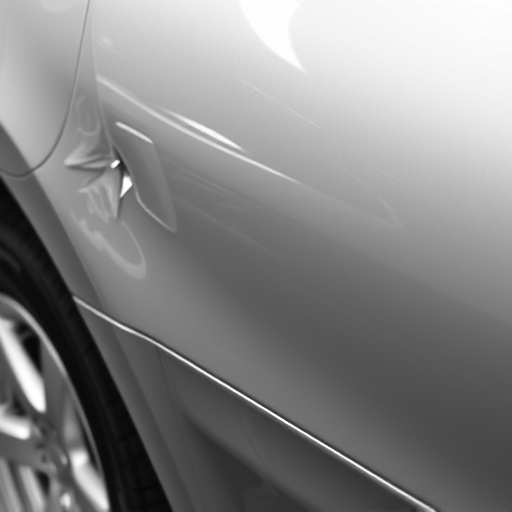
Lightning strikes can cause significant damage to vehicles, often resulting in complex auto repair challenges. Understanding this unique type of automotive repair is crucial for shops aiming to provide top-quality service. Lightning strike auto repair involves addressing not only visible exterior dents but also potential hidden internal damage caused by the intense energy and heat generated during a strike.
Shops specializing in lightning strike auto repair must be adept at identifying and repairing both structural and cosmetic issues. This includes expertise in autobody repairs, such as straightening frames, replacing panels, and restoring finishes, as well as ensuring the safety and integrity of the vehicle’s overall structure after a vehicle collision repair. By employing advanced diagnostic tools and trained technicians, shops can accurately assess the extent of damage and provide effective solutions, ensuring vehicles are safe to drive and maintain their pre-accident condition.
Implementing Rigorous Quality Control Measures
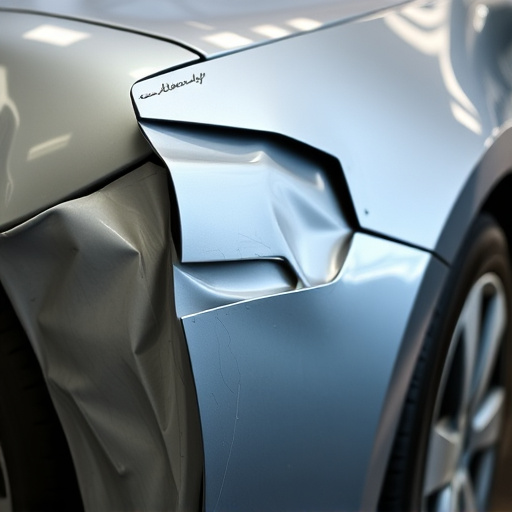
In the realm of lightning strike auto repair, ensuring quality isn’t merely an option—it’s a necessity. Reputable car body shops employ stringent quality control measures to guarantee that every repair is done with precision and using only the highest-grade materials. This meticulous approach begins with a thorough inspection of the damaged vehicle, where skilled technicians identify the exact nature and extent of the repairs required. Advanced diagnostic tools play a crucial role in this process, ensuring that no hidden issues go unnoticed.
Once the damage assessment is complete, the repair process adheres to strict protocols. From replacing components to performing intricate welding, every step is carefully monitored. Quality control involves regular checks at various stages of the repair, ensuring adherence to industry standards and safety regulations. Moreover, these shops often use specialized equipment to verify the alignment and functionality of parts, guaranteeing that the car body shop delivers a top-notch auto repair near me experience, restoring vehicles to their pre-accident condition—or even better.
Training and Certification for Technicians
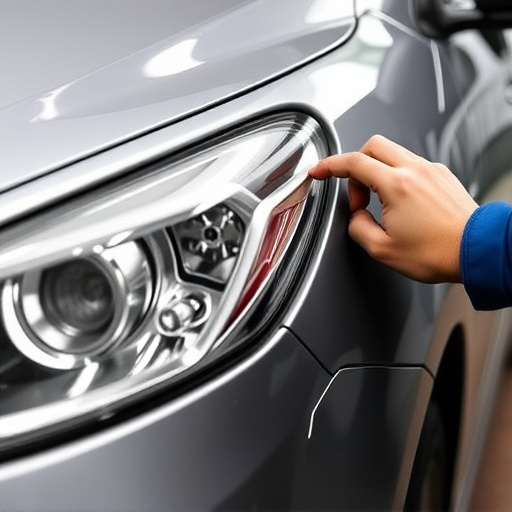
In the realm of lightning strike auto repair, ensuring quality isn’t just about having the right tools; it’s equally reliant on well-trained and certified technicians. Shops that specialize in this niche often invest heavily in ongoing training programs to keep their staff updated with the latest industry standards and safety protocols. This specialized training covers various aspects of auto body repair, including handling unique challenges posed by high-speed impacts and intricate structural repairs. With certification from reputable organizations, these technicians are equipped to tackle complex scenarios, such as collision damage repair following a fender bender, with precision and expertise.
Their proficiency extends beyond basic auto body repair skills. Technicians learn advanced techniques for metal fabrication, panel replacement, and paintwork restoration specific to vehicles damaged by lightning strikes. This specialized knowledge ensures that the repaired vehicles not only look like new but also maintain their structural integrity, addressing every trace of collision damage from a fender bender or more severe incidents. Such comprehensive training and certification are vital in upholding the reputation of these shops as leaders in lightning strike auto repair, ensuring customer satisfaction and safety on the road.
Shops specializing in lightning strike auto repair go beyond standard practices to ensure quality. By understanding the unique challenges of this type of damage, implementing rigorous quality control measures, and training technicians to industry standards, they provide reliable repairs. These steps are crucial in maintaining customer satisfaction and ensuring that vehicles affected by lightning strikes are safely restored to their pre-incident condition.
